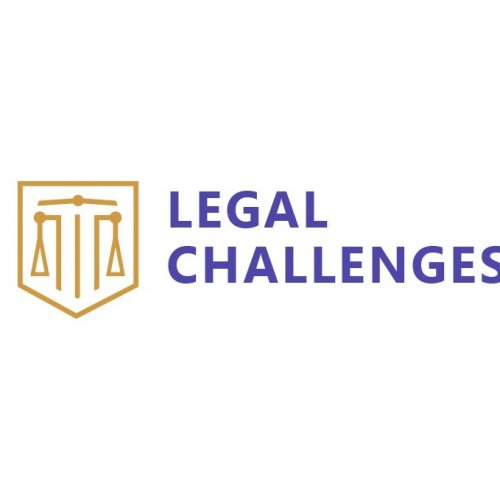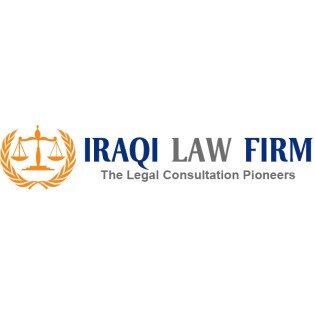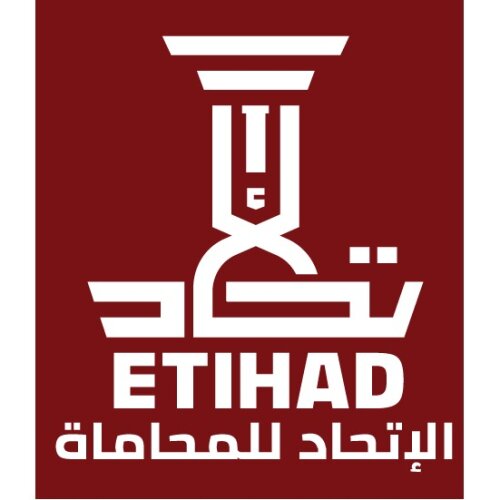Best Public-Private Partnerships (PPP) Lawyers in Iraq
Share your needs with us, get contacted by law firms.
Free. Takes 2 min.
Or refine your search by selecting a city:
List of the best lawyers in Iraq
About Public-Private Partnerships (PPP) Law in Iraq
Public-Private Partnerships, commonly known as PPPs, are collaborative agreements between government entities and private sector companies to finance, build, and operate projects that serve the public interest. In Iraq, PPPs have become increasingly important in addressing the country’s need for infrastructure, energy, healthcare, and public services improvement. The Iraqi government recognizes the value that private investment and expertise can bring to the development and management of critical national projects. Therefore, Iraq has developed legal frameworks and policies to regulate and encourage PPPs with a focus on transparency, sustainability, and mutual benefit.
Why You May Need a Lawyer
PPP projects often involve complex legal, financial, and regulatory considerations. An experienced lawyer can help you successfully navigate the many requirements involved in setting up or participating in a PPP in Iraq. You may need legal assistance in situations such as:
- Negotiating and drafting PPP contracts or agreements
- Understanding compliance with Iraqi PPP laws and regulations
- Managing cross-border issues if international investors are involved
- Resolving disputes between public and private sector partners
- Obtaining licenses, permits, or approvals from relevant authorities
- Protecting your company’s interests during tender or bidding processes
- Ensuring risk allocation provisions are fair and enforceable
- Interpreting government incentives or tax exemptions for PPP projects
- Advising on financing structures and securing funding for projects
- Assessing legal impacts of project delays or changes in public policy
Local Laws Overview
The legal regime for PPPs in Iraq is evolving but includes several key elements designed to foster successful partnerships. In 2023, Iraq enacted its first dedicated PPP Law (Law 91 of 2023) which outlines the legal foundation for public-private cooperation in infrastructure and service delivery. This law sets out the principles of partnership, eligibility criteria, project approval mechanisms, and the roles and responsibilities of both public sector entities and private investors. Additionally, Iraq’s National Investment Law, sector-specific regulations (such as those governing energy or transport), public procurement rules, and anti-corruption measures all intersect with PPP projects.
The new PPP Law establishes a Central Public-Private Partnerships Unit that oversees and streamlines the development and implementation of PPP projects across Iraq. It emphasizes transparency, competitive bidding, and risk sharing while providing mechanisms to address disputes. Foreign investors are permitted to participate in PPP projects subject to local content requirements and certain sectoral restrictions. Regulatory compliance, environmental standards, land use, and taxation are also critical facets of the legal landscape for PPPs in Iraq.
Frequently Asked Questions
What is a Public-Private Partnership (PPP) in Iraq?
A PPP in Iraq is a contractual arrangement where a private sector partner collaborates with a government body to finance, construct, operate, or maintain public projects or services, often under long-term agreements.
Which law regulates PPPs in Iraq?
The primary law governing PPPs in Iraq is Law 91 of 2023, complemented by the National Investment Law and other sector-specific regulations relevant to each project.
Can foreign investors participate in PPP projects in Iraq?
Yes, foreign investors can participate in PPP projects, although there may be local content or ownership requirements depending on the sector and project specifics.
What sectors are open to PPP projects in Iraq?
Key sectors include transportation, energy, water and sanitation, health, education, and infrastructure development, among others as designated by the Iraqi government.
How are PPP contracts awarded in Iraq?
PPP contracts are typically awarded through a competitive bidding process managed by the relevant government authority to ensure transparency and fairness.
What are some main risks in PPP projects?
Risks can include political or regulatory changes, project delays, financing challenges, disputes between partners, land acquisition issues, and currency or tax risks.
Does the Iraqi government offer incentives for PPP projects?
Yes, the government may offer incentives such as tax benefits, customs exemptions, guarantees, or financial support for strategically important PPP projects.
How are disputes resolved in PPP projects?
PPP contracts usually include dispute resolution clauses, commonly using negotiation, mediation, or arbitration as alternatives to local court procedures.
Are there special requirements for environmental or social considerations?
Yes, PPP projects in Iraq must comply with environmental regulations and may require social impact assessments, depending on the sector and project location.
How can a lawyer help with PPP projects?
A lawyer can help by reviewing and drafting contracts, ensuring regulatory compliance, assisting during tendering, managing negotiations, protecting client interests, and resolving conflicts efficiently.
Additional Resources
- The Central Public-Private Partnerships Unit (PPPU) under the Council of Ministers
- The National Investment Commission (NIC) of Iraq
- Iraqi Ministry of Planning
- Relevant sectoral ministries (for example, Ministry of Electricity or Ministry of Health)
- Iraq Chambers of Commerce and Industry
- International Finance Corporation (IFC) and World Bank regional offices
- Professional associations for lawyers and consultants specializing in PPPs
Next Steps
If you are considering involvement in a Public-Private Partnership project in Iraq, it is essential to obtain qualified legal advice early in the process. Start by identifying lawyers or law firms with experience in PPPs and local Iraqi law. Prepare a summary of your project goals and questions, then schedule consultations to discuss your specific needs. A legal expert can guide you through the due diligence, contract negotiation, regulatory approvals, and risk management required for a successful PPP in Iraq. Staying informed and working with reliable professionals increases your chances of achieving a sustainable and mutually beneficial partnership.
Lawzana helps you find the best lawyers and law firms in Iraq through a curated and pre-screened list of qualified legal professionals. Our platform offers rankings and detailed profiles of attorneys and law firms, allowing you to compare based on practice areas, including Public-Private Partnerships (PPP), experience, and client feedback.
Each profile includes a description of the firm's areas of practice, client reviews, team members and partners, year of establishment, spoken languages, office locations, contact information, social media presence, and any published articles or resources. Most firms on our platform speak English and are experienced in both local and international legal matters.
Get a quote from top-rated law firms in Iraq — quickly, securely, and without unnecessary hassle.
Disclaimer:
The information provided on this page is for general informational purposes only and does not constitute legal advice. While we strive to ensure the accuracy and relevance of the content, legal information may change over time, and interpretations of the law can vary. You should always consult with a qualified legal professional for advice specific to your situation.
We disclaim all liability for actions taken or not taken based on the content of this page. If you believe any information is incorrect or outdated, please contact us, and we will review and update it where appropriate.
Browse public-private partnerships (ppp) law firms by city in Iraq
Refine your search by selecting a city.

















